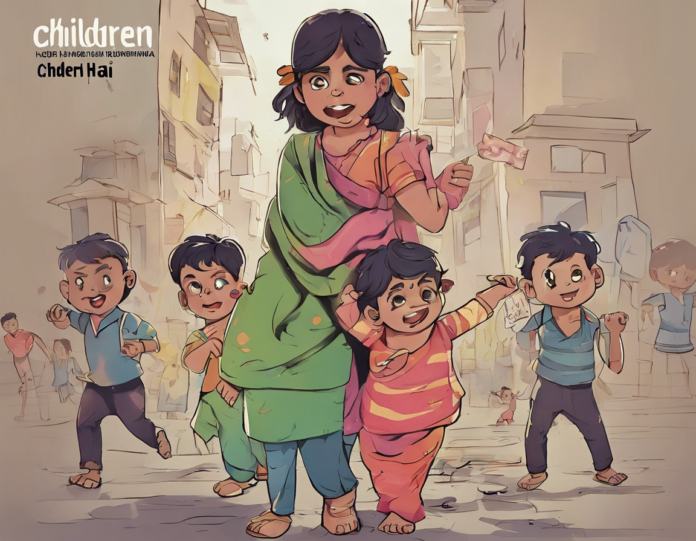Children De Kab Hai: Understanding the Significance of the Festive Tradition
Children De Kab Hai, also known as CDKH, is a popular and cherished festive tradition in many Indian households. It is a unique celebration that holds great significance for families and communities, especially during special occasions and festivals. In this blog post, we will explore the origins, customs, and importance of Children De Kab Hai, shedding light on the values it represents and why it continues to be a meaningful tradition for many.
What is Children De Kab Hai?
Children De Kab Hai can be loosely translated to “When are the children coming?” in English. It is a phrase used by elders or family members to call children to gather around and partake in various activities, especially during festive gatherings. The tradition involves engaging with children through games, storytelling, gift-giving, and bonding activities that foster a sense of togetherness and joy.
Origins of Children De Kab Hai
The origins of Children De Kab Hai can be traced back to ancient Indian culture, where children held a special place in the community. Elders would often call out to children using the phrase “Children De Kab Hai” to gather them for storytelling sessions, moral teachings, and festive celebrations. Over time, this practice evolved into a cherished tradition that celebrates the innocence, curiosity, and playfulness of children.
Customs and Activities
During Children De Kab Hai, various customs and activities take place to engage and entertain children. These may include:
- Storytelling: Elders share folk tales, fables, and moral stories with children to impart wisdom and values.
- Games and Play: Children engage in traditional games, puzzles, and creative activities that promote learning and socialization.
- Gift-Giving: Children may receive small gifts, treats, or tokens of appreciation to celebrate their presence and participation.
- Bonding Time: Families come together to spend quality time with children, strengthening familial bonds and creating lasting memories.
Significance of Children De Kab Hai
Children De Kab Hai holds deep significance for families and communities for several reasons:
- Cultural Preservation: The tradition helps pass down cultural heritage, values, and traditions from one generation to the next.
- Family Unity: It promotes family bonding, togetherness, and a sense of belonging among family members of all ages.
- Childhood Innocence: Children De Kab Hai celebrates the purity, innocence, and joy of childhood, reminding adults to embrace their inner child.
- Learning and Growth: Children learn valuable lessons, social skills, and cultural teachings through engaging in activities during Children De Kab Hai.
FAQs about Children De Kab Hai
- What is the significance of the phrase ‘Children De Kab Hai’?
-
The phrase signifies a call to gather children for festive activities, bonding, and learning experiences.
-
Is Children De Kab Hai limited to a specific festival or occasion?
-
While it is often associated with festivals and special occasions, Children De Kab Hai can be celebrated at any time to strengthen family ties.
-
How can families incorporate Children De Kab Hai into their traditions?
-
Families can set aside designated times for storytelling, games, and bonding activities with children to uphold the tradition.
-
What are some traditional games played during Children De Kab Hai?
-
Traditional games like musical chairs, sack race, and blindfold games are popular choices for engaging children during the celebration.
-
Why is it important to preserve Children De Kab Hai as a cultural tradition?
- Preserving Children De Kab Hai helps instill values, strengthen family bonds, and create lasting memories for future generations.
In conclusion, Children De Kab Hai is more than just a festive tradition – it is a celebration of childhood, family, culture, and community. By upholding this cherished practice, families can continue to nurture a sense of togetherness, pass down cultural heritage, and create memorable experiences for children and adults alike. Let us embrace the spirit of Children De Kab Hai and cherish the moments of joy, learning, and connection it brings into our lives.

